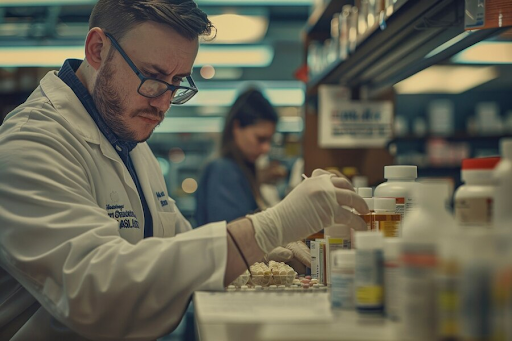Ensuring the safety and efficacy of medicines is a crucial element in healthcare. Pharmacovigilance services play a pivotal role in safeguarding public health by monitoring and evaluating the adverse effects of drugs once they are on the market. This process helps detect unknown side effects and enhances the safe use of pharmaceutical products.
What Are Pharmacovigilance Services?
Pharmacovigilance (PV) refers to the science of detecting, assessing, understanding, and preventing adverse effects or any other drug-related problems. Pharmacovigilance services are essential in collecting data from healthcare providers, patients, and pharmaceutical companies to assess the risk-benefit profile of medicinal products. This system ensures that all stakeholders are alerted about the potential risks associated with drug usage while emphasizing patient safety.
The process of pharmacovigilance goes beyond mere monitoring. It includes robust data management, analysis, and interpretation, which ultimately aids in improving drug formulations and adjusting medical guidelines. For pharmaceutical companies, these services are fundamental in maintaining compliance with regulatory authorities like the FDA or EMA.
The Importance of Pharmacovigilance in Drug Safety
The pharmaceutical industry faces enormous pressure to ensure that medicines are safe for public use. Drug development undergoes extensive clinical trials before being approved for public use, but real-world application often reveals unknown side effects or complications. Pharmacovigilance services offer a continuous evaluation mechanism that enables the identification of potential hazards at a larger scale and ensures that drug safety is continuously monitored post-launch.
For example, reports from patients using the medication or healthcare professionals administering them can highlight side effects not observed during clinical trials. These reports are systematically collected, analyzed, and communicated to the necessary regulatory bodies and manufacturers, triggering label changes, warnings, or even product recalls.
Key Elements of Effective Pharmacovigilance
Pharmacovigilance services focus on several key areas, ensuring that drugs used by the general population remain safe and effective. Some critical elements include:
Signal Detection and Risk Management
Signal detection refers to identifying new or unexpected adverse reactions related to a drug. It is an essential element of pharmacovigilance services as it allows for early identification of risks. When a signal is detected, further investigation and studies are conducted to confirm if the risk is linked to the drug, enabling regulatory authorities to take necessary actions.
Risk management, on the other hand, involves creating strategies to minimize the identified risks. Companies employ risk minimization measures such as additional clinical trials or altering drug labeling to inform healthcare professionals and patients about potential risks.
Pharmacovigilance Consulting Services
Pharmaceutical companies often collaborate with pharmacovigilance consulting services to navigate the complexities of global drug safety regulations. These consultants provide expertise in evaluating safety data, reporting to regulatory authorities, and implementing safety surveillance programs.
Pharmacovigilance consultants also guide pharmaceutical companies in setting up comprehensive safety databases, signal detection programs, and risk management plans, ensuring their processes align with global regulatory requirements.
Role of Pharmacovigilance in Drug Efficacy
While pharmacovigilance is primarily focused on safety, it also plays a significant role in ensuring that drugs maintain their efficacy over time. By tracking real-world usage, pharmacovigilance services help determine if a drug’s benefits continue to outweigh its risks in broader patient populations or long-term use scenarios.
For example, data collected through integrated surveillance can show whether a drug’s efficacy decreases in specific demographic groups or interacts poorly with other medications. This ongoing analysis is essential in refining dosage recommendations and optimizing therapeutic effects.
Support from Integrated Site Management
Effective pharmacovigilance is also closely tied to integrated site management, which involves coordinating data collection and analysis across multiple healthcare sites. Integrated site management ensures consistent data reporting, fostering a cohesive understanding of drug safety and efficacy across regions and demographics.
How Pharmacovigilance Consultants Add Value
Pharmaceutical companies often face challenges in managing the vast amounts of data generated by global drug use. Pharmacovigilance consultants are vital in this regard, providing companies with expert guidance on handling adverse event reports, regulatory compliance, and managing drug safety systems. They help in creating strategies that not only mitigate risks but also optimize drug use in diverse populations.
The Future of Pharmacovigilance Services
With technological advancements, pharmacovigilance is poised to become even more efficient and effective. Automation, artificial intelligence, and big data are being integrated into the PV process to enable real-time adverse event reporting and signal detection. The future promises to enhance predictive modeling, allowing pharmaceutical companies to anticipate drug-related risks even before they manifest in the population.
Regulatory Evolution and Global Collaboration
Global collaboration between regulatory bodies and pharmaceutical companies will strengthen the pharmacovigilance framework. As the regulatory environment becomes more stringent, the demand for comprehensive pharmacovigilance services will grow, ensuring that every drug on the market meets the highest safety standards.
Pharmacovigilance services will continue to be instrumental in keeping the healthcare system safe and effective for all. With pharmacovigilance consulting services, companies can manage complex safety requirements efficiently, ensuring they adhere to global regulations and safeguard public health.
Conclusion
In the evolving landscape of healthcare, pharmacovigilance services are indispensable in maintaining drug safety and efficacy. By actively monitoring adverse events and employing risk management strategies, these services provide an ongoing evaluation of medicines, ensuring they remain safe for public use.
Whether through pharmacovigilance consulting services or comprehensive data collection via integrated site management, pharmacovigilance’s role in the pharmaceutical industry and public health is undeniable. As technology advances, these services’ effectiveness will only grow, enhancing the safety and efficacy of medications for future generations.



